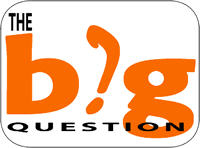Thus, I will take the lead and create a tag for this year’s conference ~ astd2008. I invite anybody else to use this while blogging, submitting to Technorati, using via Twitter, del.icio.us, and the like.
Category: Instructional Design
ASTD 2008 ICE Meetup?
I am attending the ASTD 2008 International Conference & Exposition next week in San Diego, and have been trying to locate others in the workplace learning and performance field who blog and also Tweet who may want to schedule a meetup. Thus far I have located Tony Karrer and Beth Griese, neither of whom I have previously met. There have to be others attending the largest training and development conference who blog and Tweet, haven’t there?
I wonder why ASTD is not furiously working to catch up and connect its members in the Web 2.0 sphere?
Do Instructional Designers Need Research to Inform Practice?
While I ask questions because I am interested in my work as well as my research, I genuinely want to inform our field so we can better meet the needs of our clients, colleagues, and ultimately ourselves when we work within organizations. After all, the more we know and the better informed we are, the more we can leverage that knowledge and those experiences to effect positive change.
Of the questions regarding instructional design that I identified (to which there can undoubtedly be more added), this is the one that most grips me:
Do Instructional Designers Need Research to Inform Practice?
Let me share my perspective. I like the concept of evidence-based practice, and think it offers a lot to my work, thinking, and fundamental approach to life. I have written about the area of research and practice, as well as explored some of the questions around what practitioners even mean by the concept of research.
So, back to the question at hand. Can an instructional designer (ID) need formal, peer-reviewed research in order to do his or her job? Restated in a slightly different way, can this formal research support the work of the ID, even if on an infrequent basis?
Answering “yes” may mean that channels of communication between scholars and practitioners should be explored and opened. Answering “no” may show that academics in the field are working on research that has no practical value.
What do you think?
Instructional Designers, Scholar or Practice
Ahh, how I love when the gap between research and practice becomes so apparent. As a self-described scholar-practitioner in the area of human resource development (an a professional instructional designer), I found their conversation engaging and respectful, while also raising countless issues about the field of ID / ISD:
- should there be professional certification?
- are the certifications already out there not doing their jobs well enough?
- who should decide?
- does Corporate America care?
- what will gap(s) will this type of certification fill?
- who will make money from the certification process?
- how if at all will universities change or even become part of this process?
- is there enough of a market for this?
- is there enough research to actually have a body of knowledge, or is it only best practice?
- is research needed outside of best practice at all?
- how have related fields, such as training, OD, HRD, workplace learning and performance, and what have you addressed this and to what success?
These are just my first thoughts from a conversation that occurred in the recent past. I wonder what can be next to consider with this?
What I Hope to Improve as a Learning Professional
 I really like the ASTD Learning Circuits Big Question this month, which is “What would you like to do better as a Learning Professional?”
I really like the ASTD Learning Circuits Big Question this month, which is “What would you like to do better as a Learning Professional?”
This hearkens me back to a blog post I wrote yesterday, Whose Objectives Are They, Anyway? I want have better conversations, discussions, buy-in, and agreement of learning objectives between learner and instructional designer / trainer / instructor within higher education.
The current system of instructional designer designing objectives based on a needs analysis that often does not acknowledge direct input from the learners does not respect the experiences and freedom of an adult population. While I follow the ADDIE process in everything I do, as a higher education instructor I create the objectives based on university expectations and often give them to the students without their input and buy-in. Common for higher education, but unaccaptable for adult education that seeks to acknowledge the active role of the learner in the learning process.
So, what do I hope to improve? Collaborative agreement on learning objectives within higher education.
